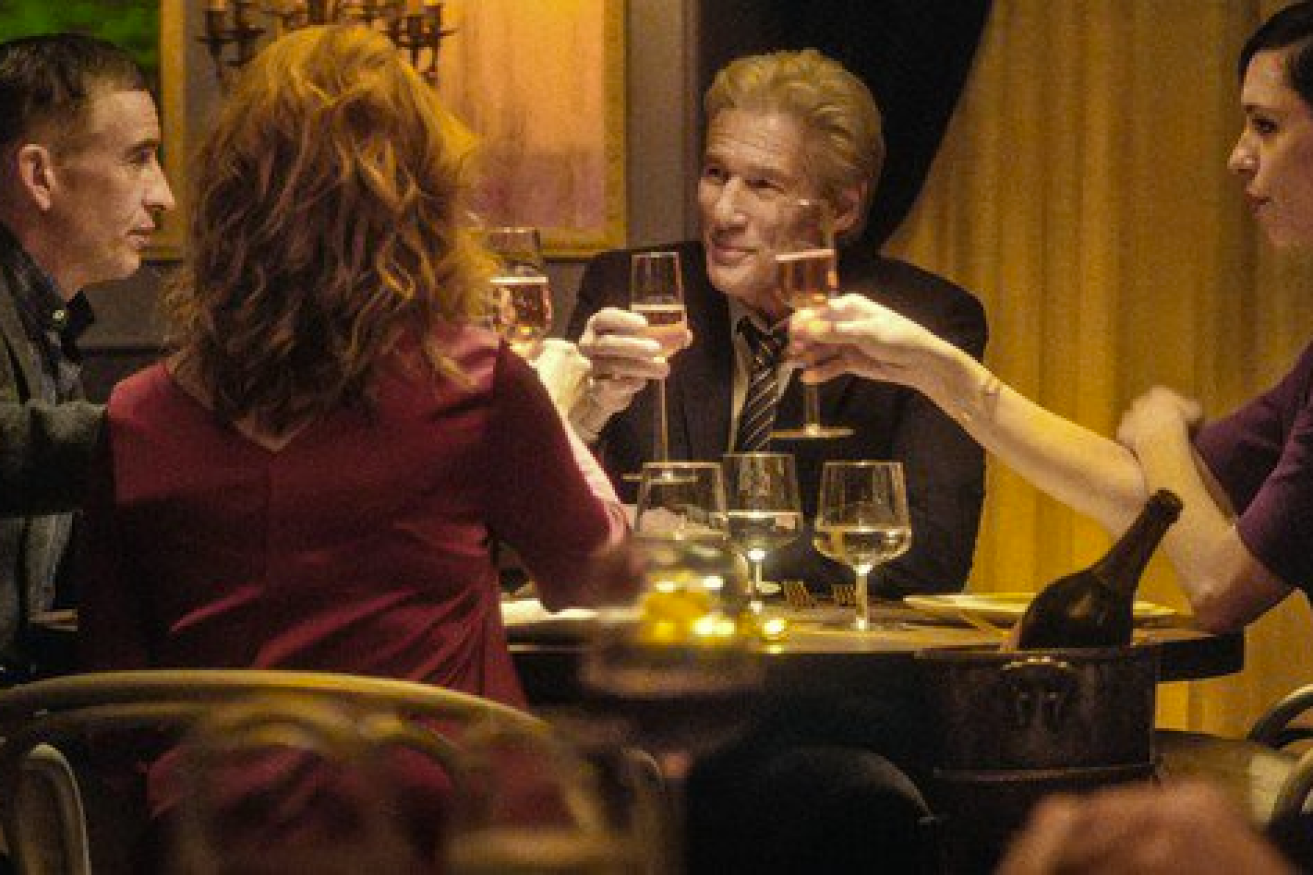Film review: The Dinner
Richard Gere, Laura Linney, Steve Coogan and Rebecca Hall form a compelling quartet in Oren Moverman’s dark and satirical adaptation of Herman Koch’s bestseller, The Dinner.


Based on the 2009 bestseller by Dutch author Koch, the film maintains the black satire the novel directed at the privileged classes, but Israeli-American Moverman adds his own layer of ominous atmosphere and savage social critique.
The film has shifted the action from the novel’s setting in Amsterdam to an unspecified American city but it retains the structure of the wildly successful novel.
It begins with two couples having dinner at an absurdly exclusive restaurant housed in a mansion. Paul Lohman (Steve Coogan) is a caustic former high-school teacher who gradually reveals himself to be quite unstable and an unreliable narrator of events. Paul’s wife, Claire (Laura Linney), is warm, maternal and treats her cynical misanthrope of a husband with resigned compassion. Paul’s older brother, the silver-fox celebrity congressman Stan Lohman (Richard Gere), is in the midst of a political campaign and looks set to be elected the next governor. He arrives at the restaurant with his beautiful but visibly distressed second wife Katelyn (Rebecca Hall).
The two couples are prepared for a respectable, if stiffly polite, dinner but as the evening wears on, the tension builds and the layers of civility are peeled away to reveal the potential for violence buried deep within.
The tension derives from the situation Stan has brought them together to discuss. The sons belonging to both couples are friends and on a night after a party the three boys stop at an ATM booth with a homeless woman sleeping inside. The subsequent actions of Michael (Charlie Plummer), Paul and Claire’s 16-year-old son and Stan and Katelyn’s sons, Rick (Seamus Davey-Fitzpatrick) and Beau (Miles J. Harvey) are pivotal.
Their sons have done something terrible, so what should the parents do? Reveal the truth and make the cousins face the consequences or cover it up for the protection of all involved, children and parents alike?
The power of the film lies in how this ethical dilemma is exposed and explored. The four characters reveal major and surprising differences in opinion. Family history is disclosed in a series of flashbacks and digressions that slow the plot but compensate by adding layers of complexity and cutting social comment on class privilege, mental illness and justice. At its heart, this film explores how far the parental obligation to love and protect extends when faced with a question of justice and dire ethical choice.
Aside from the riveting performances by the four key actors, the film is beautifully shot. Moverman and cinematographer Bobby Bukowski cleverly use light, shadow and tone to suggest characters’ inner states of mind, giving the cinematography an interesting role in character expression.
If, like me, you loved Koch’s novel and thought the final chapter was a masterpiece, you will be taken aback by the license Moverman has taken with his adaptation. Yet for all my shock at the change to the final brutal twist, the closing scenes of the film did ensure I was still turning this film over in my mind for days after viewing. Some may find the alterations to the plot disappointing. I eventually decided that the change amplified this film from gripping psychological thriller into an arthouse morality play. I challenge you to see this film and not still be thinking, days later – what would I do?




